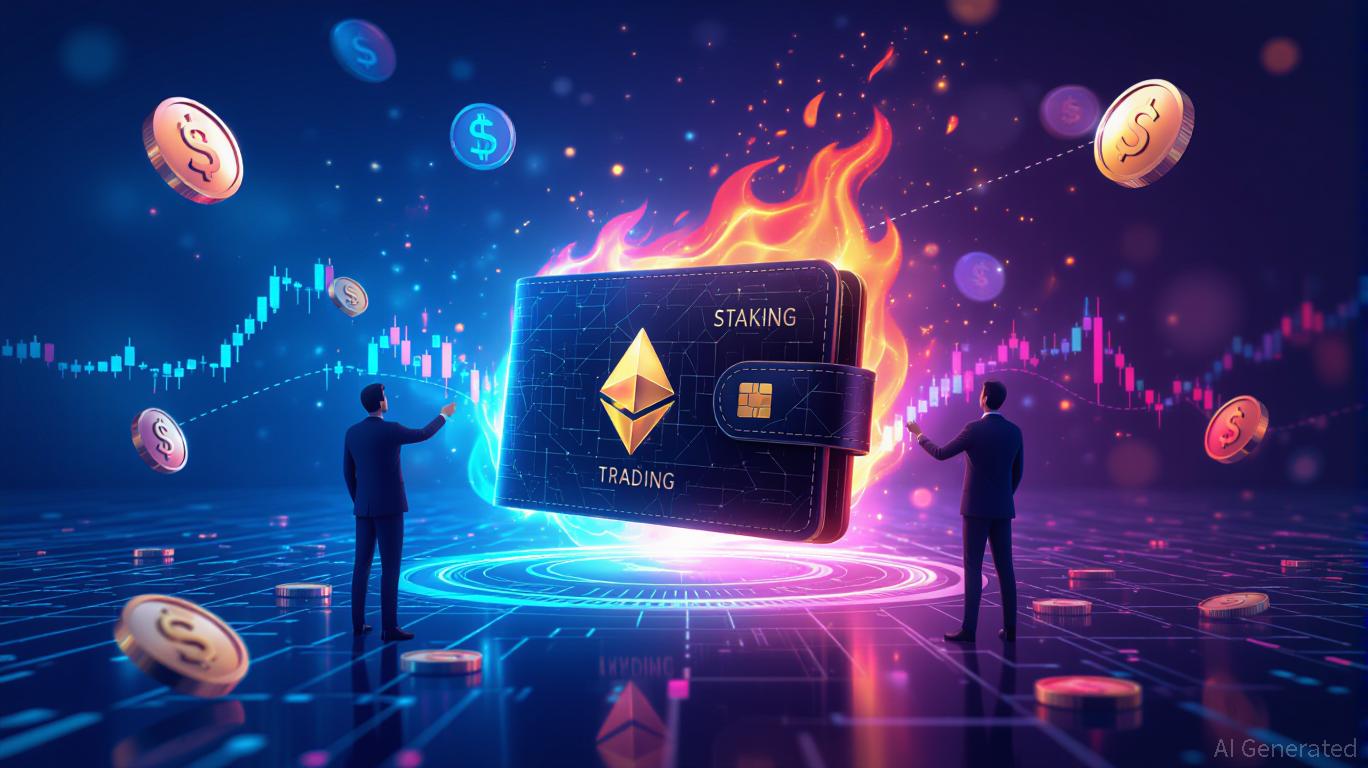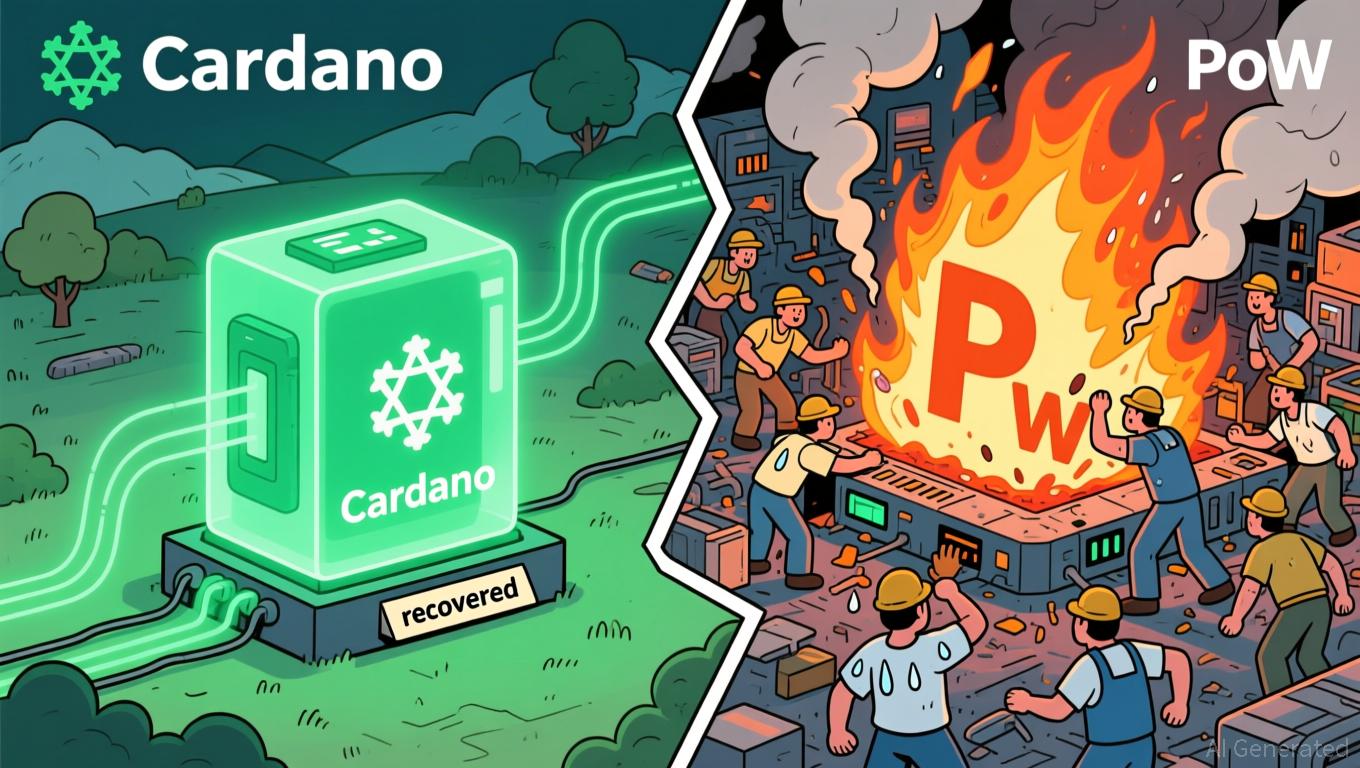DeFi’s $12B Liquidity Dilemma: Aqua Seeks to Transform Dormant Funds into Active Power
- DeFi faces $12B liquidity crisis with 95% capital idle due to blockchain fragmentation. - 1inch's Aqua protocol enables shared liquidity, turning wallets into self-custodial AMMs to boost capital efficiency. - Aqua's $100K bug bounties and SDK aim to refine infrastructure as DeFi borrowing hits $41B in Q3 2025. - Critics highlight DeFi's fragmentation barriers, but proponents see Aqua replicating 2019 aggregation success. - 1INCH token's $0.207 breakout could signal optimism about resolving the liquidity
Recent industry research reveals that decentralized finance (DeFi) is grappling with a $12 billion liquidity shortfall, with 95% of funds remaining unused due to fragmentation among various protocols and blockchains. This challenge has driven new developments, such as 1inch's introduction of Aqua—a shared liquidity protocol designed to transform capital deployment in DeFi. The platform's co-founder Anton Bukov
Launched in November 2025, Aqua provides developers with access to a unified liquidity layer through an early-access SDK, libraries, and guides
The necessity for such advancements is highlighted by the unprecedented leverage in DeFi.
Investors are monitoring the 1inch token (1INCH) as an indicator of sector sentiment.
While critics maintain that DeFi’s fragmented landscape still hinders widespread adoption, supporters such as 1inch co-founder Sergej Kunz argue
The sector’s current phase marks a pivotal moment: as leverage and borrowing hit new highs, solutions like Aqua seek to activate dormant capital. The future of DeFi may depend on whether shared liquidity frameworks can resolve the industry’s liquidity dilemma or if it will continue to struggle with underused assets.
Disclaimer: The content of this article solely reflects the author's opinion and does not represent the platform in any capacity. This article is not intended to serve as a reference for making investment decisions.
You may also like
XRP News Today: XRP ETF Investments See $4 Billion Influx Amid Price Drop: Market Adjusts After Recent Surge
- Ripple's XRP ETFs see $128M inflows and regulatory approvals, but prices drop amid market correction. - XRPI and XRPR ETFs fall 8%, while XRPC ETF generates $58.5M in first-day trading, surpassing Solana's debut. - SEC approvals confirm XRP's commodity status, boosting institutional confidence as nine new XRP ETFs target $4B–$8B inflows. - Technical analysis shows XRP-USD above $2.00, with analysts projecting $2.50 by late 2025 if ETF AUM exceeds $8B.

San Francisco Hotel Promotions and Autonomous Taxis Indicate Economic Recovery
- San Francisco's hotel market shows recovery as Newbond and Conversant buy two iconic hotels for $408M, signaling investor confidence amid rising convention bookings. - Tech innovation accelerates with Amazon's Zoox launching free robotaxi trials, competing with Waymo and Tesla in autonomous vehicle testing. - Deutsche Bank raises capital via a 7.125% AT1 bond and revises ESG targets to include 900B€ in transition finance by 2030, reflecting industry decarbonization trends.

TWT's Revamped Tokenomics: Redefining Value for Holders and Ensuring Long-Term Project Viability
- TWT rebranded as Toncoin in 2025, shifting to gamified utility via Trust Premium, emphasizing user engagement and gas discounts. - A 2020 token burn reduced supply by 40%, but liquidity risks persist due to pre-burn circulation and centralized utility dependencies. - Lessons from TNSR's collapse highlight the need for decentralized use cases, as TWT's value relies on recurring incentives and cross-chain liquidity. - Analysts project TWT could reach $15 by 2030, contingent on sustained adoption and addres

Cardano News Today: Blockchain Dispute: Should Those Responsible for Chain Splits Face Legal Action or Should Open-Source Creativity Be Safeguarded?
- Solana co-founder Anatoly Yakovenko praised Cardano's swift recovery from a November 2025 chain split, calling its resilience "pretty cool" despite a malicious transaction exploiting a deserialization bug. - Cardano's Ouroboros consensus model enabled rapid convergence without hard forks, preserving transaction throughput and avoiding fund losses through emergency node upgrades. - A public debate emerged between Yakovenko and Cardano founder Charles Hoskinson over legal accountability, with Hoskinson adv
